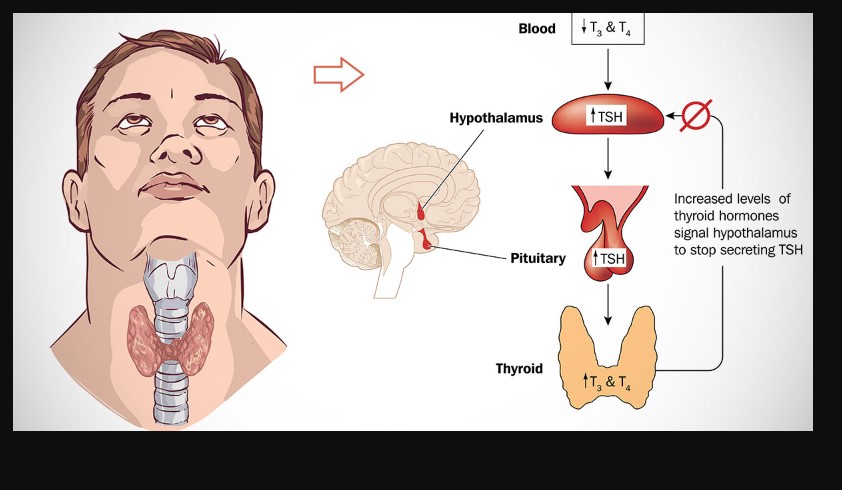Welcome to the world of holistic wellness with Wellhealth Ayurvedic health tips! Are you ready to embark on a journey towards optimal health and harmony? Dive into the ancient wisdom of Ayurveda, a 5,000-year-old system of medicine that focuses on balancing mind, body, and spirit.
Let’s explore how Ayurveda can revolutionize your approach to well-being and empower you to live your best life.
What is Ayurveda and its principles?
Ayurveda, often called the “science of life,” is a traditional healing system that originated in India thousands of years ago. At its core, Ayurveda seeks to achieve balance and harmony within the body through personalized lifestyle practices. The principles of Ayurveda are based on the belief that each individual has a unique mind-body constitution, known as their dosha.
Vata (air and space), Pitta (fire and water), and Kapha (earth and water) are the three main doshas. These doshas govern various bodily functions and influence our physical, mental, and emotional characteristics. By understanding your dominant dosha, you can tailor your lifestyle choices to promote overall well-being.
Ayurvedic principles emphasize the importance of maintaining equilibrium in all aspects of life – from diet and exercise to sleep patterns and stress management. Ayurveda teaches us how to cultivate vibrant health on every level through proper alignment with nature’s rhythms and cycles.
The Doshas: Understanding your body type
Ayurveda, the ancient holistic healing system from India, recognizes that each individual is unique and composed of a specific combination of the three doshas – Vata, Pitta, and Kapha.
Understanding your predominant dosha can help you tailor your lifestyle choices for optimal health and well-being. Vata individuals are often creative and energetic but may struggle with anxiety; Pitta types tend to be driven and focused but prone to irritability, while Kapha individuals are usually nurturing and grounded yet may battle with sluggishness.
By identifying your dominant dosha through an Ayurvedic assessment, you can make informed decisions about diet, exercise routines, daily practices, and even career choices that align with your body’s natural tendencies. Embracing this personalized approach can improve physical health, mental clarity, emotional balance, and overall vitality.
Ayurvedic practices for a healthy lifestyle
Ayurveda emphasizes the importance of maintaining a healthy lifestyle through holistic practices that promote balance and well-being. Incorporating Ayurvedic principles into your daily routine can profoundly impact your overall health.
One key aspect of Ayurvedic practices for a healthy lifestyle is establishing a daily routine, including regular sleep patterns, meal times, and exercise. This helps align your body’s natural rhythms with the cycles of nature.
Another important practice is mindful eating – being present while you eat, choosing fresh and seasonal foods, and paying attention to how different foods make you feel. This not only nourishes your body but also supports digestion and overall wellness.
Regular physical activity is also essential in Ayurveda to maintain a healthy lifestyle. Whether it’s yoga, walking in nature, or other forms of exercise, staying active helps improve circulation, strength, and mental clarity.
By incorporating these Ayurvedic practices into your daily life, you can cultivate balance, harmony, and vitality from within.
Importance of diet in Ayurveda
In Ayurveda, diet is crucial in maintaining a balance between the mind, body, and spirit. It is believed that different foods have varying effects on each individual based on their dosha. Eating according to your dosha can help prevent illnesses and promote overall well-being.
Ayurveda emphasizes eating fresh, seasonal, and organic foods to ensure maximum nourishment for the body. Meals should be cooked lovingly and consumed peacefully to aid digestion. The focus is not just on what you eat but also on how you eat it.
Balancing tastes in every meal—sweet, sour, salty, bitter, spicy, and astringent—is essential for harmony within the body. Each taste corresponds to different elements in nature and contributes uniquely to our health.
By understanding your dosha and incorporating the right foods into your diet, you can optimize digestion, absorption of nutrients, energy levels, and emotional well-being. Food truly becomes medicine in Ayurveda when chosen wisely for your constitution.
Herbal remedies and supplements recommended by Ayurveda
Ayurveda, an ancient system of medicine originating in India, strongly emphasizes herbal remedies and supplements to promote health and well-being. According to Ayurvedic principles, herbs are believed to have unique healing properties that can help balance the body’s doshas.
One commonly used herb in Ayurveda is Ashwagandha, which is known for its adaptogenic properties that help the body manage stress. With its potent anti-inflammatory effects, turmeric is another Ayurvedic medicine staple. Triphala, a blend of three fruits rich in antioxidants and fiber, is often recommended for digestive health.
Incorporating these herbs into your daily routine can support overall vitality and harmony within the body. It’s essential to consult with an Ayurvedic practitioner before starting any new herbal supplement regimen to ensure it aligns with your unique constitution and needs.
The mind-body connection in Ayurveda
Ayurveda emphasizes the profound connection between the mind and body, recognizing that emotional well-being dramatically impacts physical health. According to Ayurvedic teachings, imbalances in the mind can manifest as physical ailments in the body.
The concept of “mind-body types” or doshas is crucial in understanding how our mental and emotional tendencies influence our overall health. By identifying your dominant dosha, you can tailor lifestyle practices to achieve harmony between your mind and body.
Practices like meditation, yoga, and breathing exercises are recommended in Ayurveda to cultivate a balanced mind-body connection. These techniques help reduce stress, promote relaxation, and enhance overall vitality.
Maintaining a positive mindset through mindfulness and self-awareness is critical to nurturing a healthy relationship between your thoughts and physical well-being. When we align our thoughts with actions that support our doshic constitution, we pave the way for optimal health and wellness.
Incorporating Ayurvedic practices into modern life
As we navigate the fast-paced world of modern life, incorporating Ayurvedic practices can provide us with a sense of balance and harmony. One way to seamlessly integrate these ancient traditions into our daily routine is by starting our day with some gentle yoga or meditation to center ourselves before diving into the hustle and bustle.
Another simple yet effective practice is mindful eating – taking the time to savor each bite, being grateful for its nourishment, and listening to our body’s hunger and fullness signals. This approach enhances digestion and fosters a deeper connection with our food.
Incorporating herbal teas or adaptogenic supplements into our diet can further support overall well-being. These natural remedies have been used for centuries in Ayurveda to help restore balance within the body and promote vitality.
By making minor adjustments like creating a calming bedtime routine or spending time in nature regularly, we can honor ancient wisdom and modern demands simultaneously. Finding ways to weave Ayurvedic principles into our contemporary lifestyle allows us to cultivate resilience and thrive amidst today’s challenges.
Common misconceptions about Ayurveda
Ayurveda, an ancient holistic healing system, often faces misconceptions in modern times. One common myth is that Ayurveda is just about herbs and oils – while these are important, the practice encompasses much more. Another misconception is that Ayurvedic treatments take a long time to show results. With consistent adherence to the principles, improvement can be seen relatively quickly.
Some believe that Ayurveda is only for physical health concerns when it focuses on balancing mind, body, and spirit. There’s also a belief that Ayurvedic practices are too restrictive or difficult to follow in today’s fast-paced world. However, by making small changes gradually and finding what works best for you, incorporating Ayurveda into daily life can be manageable and rewarding.
It’s essential to understand the depth and versatility of Ayurveda beyond these misconceptions to benefit from its wisdom and guidance.
Consultation with an Ayurvedic practitioner
Consulting with an Ayurvedic practitioner can provide personalized insights into your health and well-being. These practitioners, trained in the ancient principles of Ayurveda, take a holistic approach to assess your unique mind-body constitution. Through detailed discussions and examinations, they identify imbalances in your Doshas and recommend tailored treatments to restore harmony.
During a consultation, expect questions about your lifestyle habits, dietary preferences, sleep patterns, and overall health history. The practitioner may also perform physical assessments like pulse readings or tongue examinations to gain further insight into your body’s state. Based on this comprehensive evaluation, they will suggest specific diet modifications, herbal remedies, lifestyle changes or therapeutic practices to address any underlying issues.
Working with an Ayurvedic practitioner is not just about treating symptoms but understanding the root cause of ailments. By delving deep into your physical, mental, and emotional well-being, these experts guide you toward sustainable health improvements. Remember that each individual’s journey towards wellness is unique; hence, the treatment plan recommended by an Ayurvedic practitioner will be customized to your needs and will result in optimal results.
Conclusion
Incorporating Ayurvedic practices into our modern lifestyles can bring about a significant shift towards holistic wellness. By understanding our unique body constitution and following Ayurvedic principles, we can achieve balance and harmony in our physical, mental, and emotional well-being.
Remember that Ayurveda is not just a trend but a time-tested science that offers personalized health solutions. Embracing the wisdom of Ayurveda through diet, lifestyle modifications, herbal remedies, and mindful practices can lead to long-lasting health benefits.
Consulting with an experienced Ayurvedic practitioner can provide further insights tailored to your needs. By incorporating Wellhealth Ayurvedic health tips into your daily routine, you can cultivate vitality and promote overall wellness for a balanced life filled with energy and positivity.






